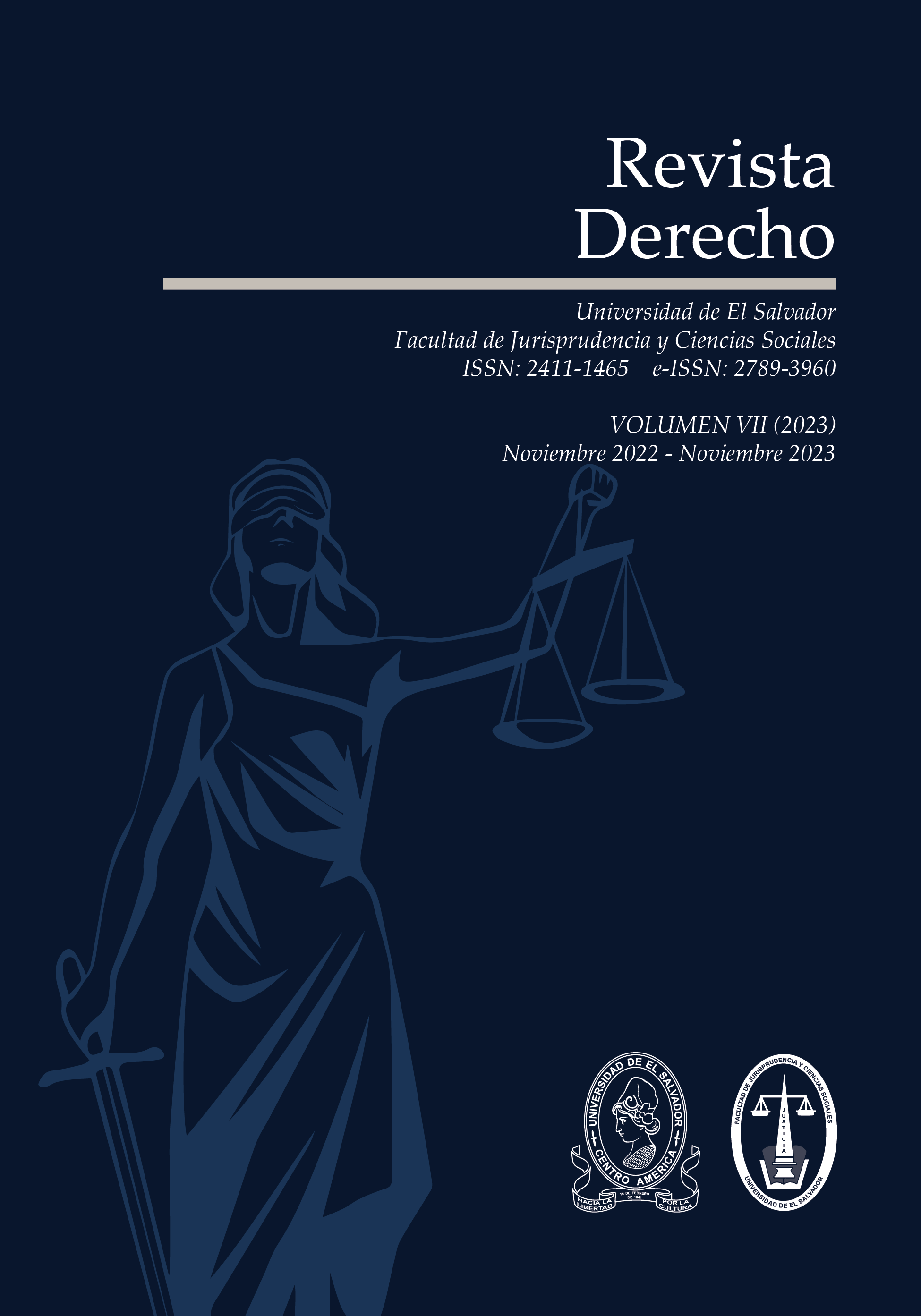Independence and limits between the organs of the State in Salvadoran constitutionalism
Keywords:
independence, organs of State, salvadoran constitutionalism, power, legislative assembly, judicial branch, executive branchAbstract
The Constitution of the Republic of El Salvador establishes its three branches of government: the Executive, Legislative, and Judicial. Each of them is assigned specific powers, such as the forms of control between these branches. This topic is the foundational idea behind the creation of this article, as it reflects the independence in the roles of each branch and the limits exercised from within the same power. In the analysis, it is emphasized that each of the mentioned branches is not superior to the others, but, as the phrase itself determines (branches), they constitute specific parts with determined functions, ultimately forming a unified whole. In the political reality of El Salvador, this situation often fails to materialize, as it reflects a culture of the predominance of the Executive Branch over the others. The article provides a doctrinal framework of checks and balances through the state's branches, the main functions of each when it comes to control, and a practical relationship of their implementation in the political reality of El Salvador. The aim is to provoke reflection on the necessity and importance of such controls and their effectiveness.
Downloads
References
"El Salvador: tensión constitucional tras enfrentamiento de Bukele contra el Parlamento", France 24 (10 de febrero de 2020). https://www.france24.com/es/20200210-nayib-bukelesalvador-prestamo-pandillas
“El Salvador aprueba polémico préstamo para seguridad”, Deutsche Welle (12 de mayo de 2021). https://www.dw.com/es/el-salvador-parlamento-aprueba-pol%C3%A9mico-pr%C3%A9stamo-para-plande-seguridad/a-57503176
Aguiló Regla, Josep. En Defensa del Estado Constitucional de Derecho. Red Iberoamericana de Argumentación Jurídica. Ciudad de México: Conferencia impartida en el Primer Seminario Internacional de Argumentación Jurídica, Constitucionalismo y Democracia, 2018.
Bidart Campos, Germán José. Compendio de derecho constitucional. Buenos Aires: Ediar, 2004.
Carlos Gómez Diaz de León. Sistema Político y Formas de Gobierno. México: Universidad Autónoma de Nuevo León, s. f.
Constitución de la República de El Salvador. El Salvador: Asamblea Constituyente, 1983.
Corvalán, Juan Gustavo. "Los ejes centrales de la división de poderes en el Estado Constitucional de Derecho". Revista de Investigações Constitucionais 2, n.1 (2015): 225-56. http://doi.org/10.5380/rinc.v2i1.43661
Gargarella, Roberto. "El nuevo constitucionalismo dialógico, frente al sistema de los frenos y contrapesos". Revista Argentina de Teoría Jurídica 14 (diciembre de 2013).
Loewenstein, Karl. Teoría de la Constitución. Barcelona-Caracas-México: Editorial Ariel, 1973.
Mainwaring, Scott y Matthew Soberg Shugart. Presidencialismo y democracia en América Latina. Buenos Aires: Paidós, 2002
Sagües, Néstor Pedro. Manual de derecho constitucional. Buenos Aires: Editorial Astrea, 2007.
Sala de lo Constitucional. Proceso de Inconstitucionalidad, Referencia 6-2020. El Salvador: Corte Suprema de Justicia, 2020.
Vollenweider, Camila. "Informe postelectoral de El Salvador: Bukele ganó de nuevo". CELAG, 1 de marzo de 2021. https://www.celag.org/informe-postelectoral-de-el-salvador-bukele-gano-de-nuevo/
Downloads
Published
Issue
Section
License
Copyright (c) 2023 Revista Derecho

This work is licensed under a Creative Commons Attribution-NonCommercial 4.0 International License.
The authors transfer the copyright rights in favor of the Faculty of Jurisprudence and Social Sciences of the University of El Salvador (through Aequus Editorial) to include their writing in Revista Derecho.








